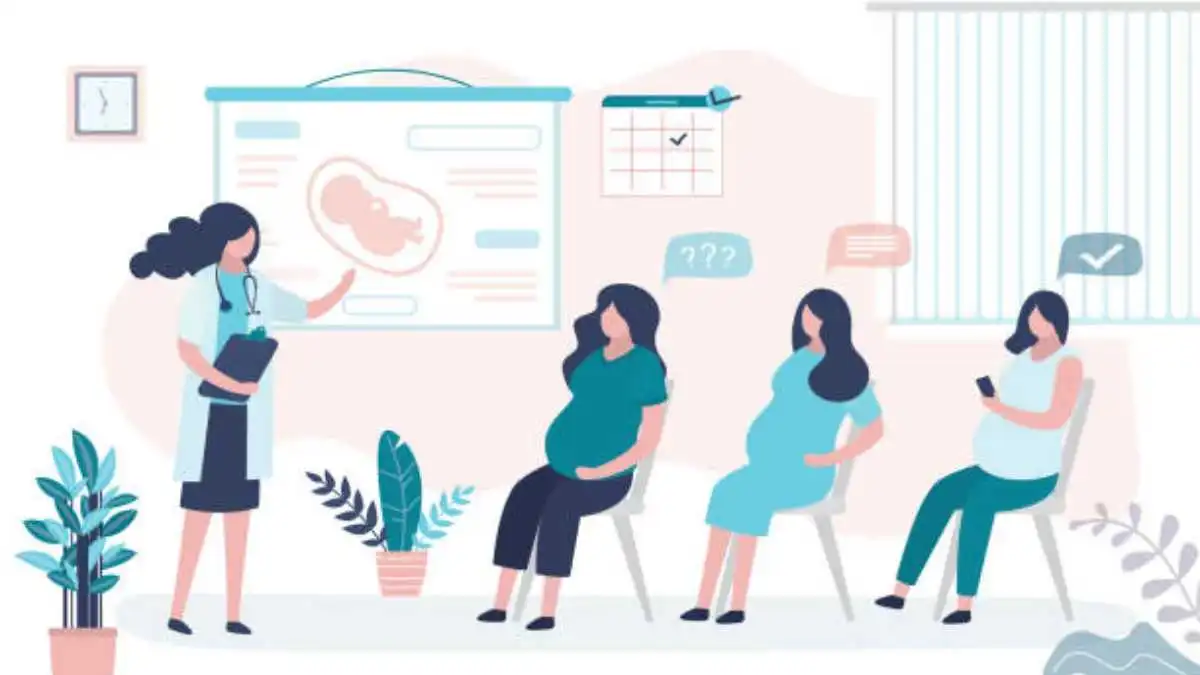HEALTH AND FITNESS
Nurturing the Journey: How Female Healthcare Clinics Support Prenatal & Postpartum Wellness

Pregnancy is one of the most transformative seasons in a woman’s life, filled with both anticipation and uncertainty. During this deep personal journey, access to compassionate and reliable care can make all the difference in both emotional and physical well-being. Female healthcare clinics provide a vital environment where women can receive not only medical services but also encouragement, education, and emotional support. These clinics serve as trusted anchors for expecting mothers to navigate the changes of pregnancy and the recovery that follows childbirth. We will explore how these clinics champion women’s health through every stage of the prenatal and postpartum experience, building trust and nurturing strength.
Table of Contents
Ways Female Healthcare Clinics Support Prenatal and Postpartum Wellness
1. Creating a Foundation of Trust Through Personalized Prenatal Care
A female healthcare clinic in Oregon Citytakes time to understand the unique needs of each expectant mother, establishing a foundation of trust early in the pregnancy. This approach allows women to feel heard and valued rather than rushed through generic appointments. From the moment a woman confirms her pregnancy, these clinics offer tailored services including pregnancy testing, health assessments, and initial planning for the months ahead. Each visit builds upon a relationship where the mother’s values, concerns, and questions guide the care plan.
This personalized support not only empowers women to participate in their own health decisions but also improves outcomes by fostering consistent communication. Regular checkups, nutritional guidance, and discussions about fetal development help women feel confident and equipped. The consistent presence of a care team allows mothers to express concerns without hesitation and receive timely answers, which reduces anxiety and improves overall well-being.
2. Offering Holistic Support Services for Mental and Emotional Wellness
Pregnancy and the postpartum period bring a complex mix of emotions—from joy and excitement to fear and uncertainty. Female healthcare clinics recognize that wellness is not only physical but also mental and emotional. Clinics often provide counseling, peer support groups, and stress management resources tailored to mothers before and after birth. These services ensure that a woman’s mental health receives the same attention as her physical health. For women experiencing anxiety or depression, especially postpartum depression, early support can be life changing.
Clinics like those within the Obria network encourage open conversations about feelings, removing the stigma that often prevents women from asking for help. Staff are trained to recognize signs of emotional struggle and respond with care, connecting mothers with therapeutic resources or support communities. This ongoing mental health care plays a crucial role in helping women adjust to motherhood, build resilience, and feel less alone in their journey.
3. Providing Education That Prepares Women for Labor, Birth, and Beyond
A key function of female healthcare clinics is providing comprehensive prenatal education. Rather than offering just basic information, these clinics often host workshops and one-on-one sessions designed to prepare mothers for labor, delivery, breastfeeding, and newborn care. This education goes beyond clinical facts to include conversations about expectations, fears, and personal choices. Informed mothers are empowered mothers, those who understand what their bodies are going through and what options are available to them during delivery tend to feel more confident and in control.
Clinics provide guidance on birth plans, pain management options, and what to expect in both natural and assisted deliveries. Additionally, they help partners understand how to support during labor and in the early days of parenting. These educational services demystify the process and reduce the fear of the unknown. For women giving birth for the first time, the ability to ask questions and learn in a welcoming, female-focused environment is especially important.
4. Supporting Postpartum Recovery and Physical Healing
The transition from pregnancy to postpartum can be physically demanding. From hormonal shifts to healing after delivery, new mothers face a range of health challenges. Female healthcare clinics remain committed to women even after the baby is born, ensuring that the recovery process is not neglected. Postpartum appointments include physical exams, discussions about bleeding, pain management, sleep, and the healing process. Women who delivered via cesarean or experienced complications receive personalized follow-up care tailored to their recovery timeline.
Clinics also help monitor conditions like postpartum infections, high blood pressure, and breastfeeding difficulties. In many cases, lactation support is available to assist new mothers with feeding techniques and overcome early hurdles. This phase of care is often where clinics shine—providing a continued sense of safety, consistency, and compassion that helps mothers transition into their new role while feeling supported and cared for. Female healthcare clinics are more than medical facilities—they are communities of care where women find the support they need to grow into motherhood with strength and confidence. From the early weeks of pregnancy to the quiet challenges of postpartum recovery, these clinics offer compassionate care, personalized guidance, and a commitment to wellness that embraces the whole person. Whether it’s a listening ear, a healing hand, or an informative class, the resources provided by female healthcare clinics remind women that they don’t have to walk this journey alone. In a world where healthcare can feel impersonal, these clinics offer a much-needed human touch—one that empowers, uplifts, and honors the miracle of life.
-

 GENERAL7 months ago
GENERAL7 months agoChristofle – For Those Who Dream of Family Heirloom Silver
-

 SPORTS9 months ago
SPORTS9 months agoDiscover the World of Football with Streameast: Watch Your Favorite Leagues and Tournaments
-

 GENERAL1 month ago
GENERAL1 month agoUncovering the World of кинокрадко: The Dark Side of Film Piracy
-

 GENERAL4 months ago
GENERAL4 months agoATFBooru: Anime, Gaming, and Subculture Imageboard


























